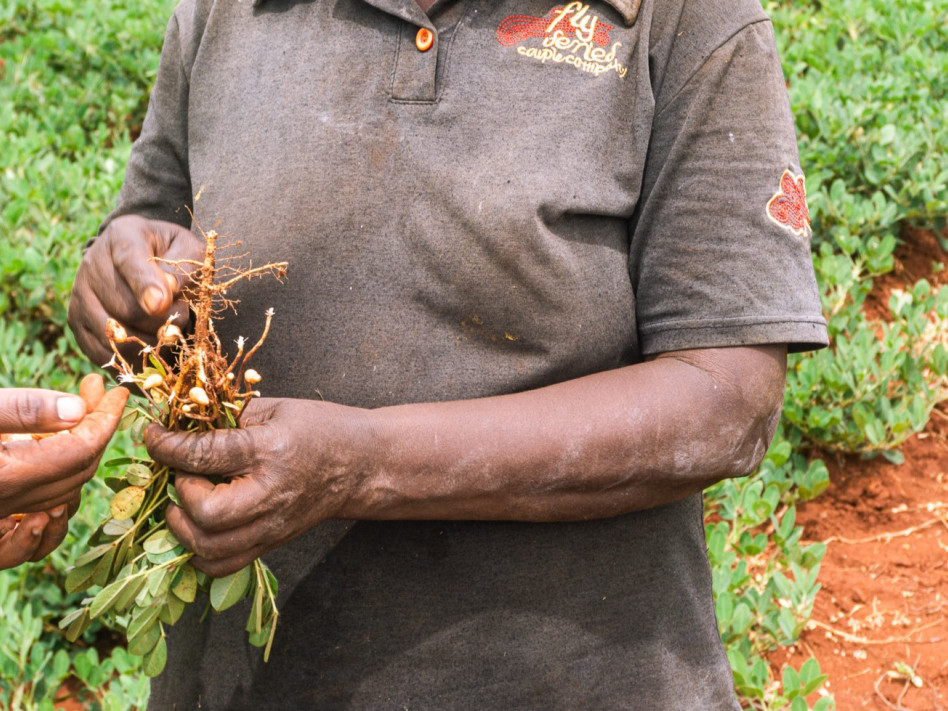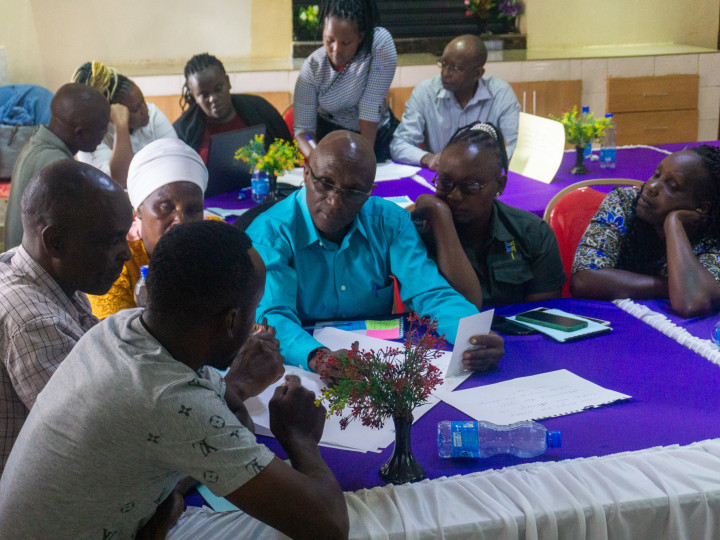"Empowering Meru Farmers" is a graduation project focused on creating positive change in the lives of smallholder farmers in the Meru region of Kenya. With the introduction of groundnut farming in the area, this project addresses the pressing need for specialised tools that are both effective and affordable. Despite groundnuts being a promising cash crop and a nutritious food source for the local community, the harvesting process is very time-consuming. Harvesting the groundnuts is now done by hand for which several people are hired to help pick. By developing a prototype of a manual groundnut thresher that is manufactured locally, the project aims to empower farmers, particularly women and youth, by enhancing productivity, saving on expenses, and fostering sustainable practices. The project consists of several phases, starting with research in the Netherlands through interviews with experts into the local context, cultural nuances, and the current practices of smallholder farmers in Meru. Next, an exploration of the current options available around the world led to several initial sketches to bring to Kenya.
In Kenya, working closely with stakeholders and local experts, the project involves both groundnut farmers and a local technical institute in the design process, ensuring their active participation and input. Within 6 weeks, the goal is to realise a prototype that fits the specific context of the groundnut farmers and is also manufactured locally. Making the groundnut thresher locally stimulates the local economy and creates jobs. Moreover, local production makes the machine more accessible to farmers in Meru, keeping costs down and promoting the sustainability of the project. Conducting comprehensive assessments to evaluate environmental and social impacts involves engaging with the smallholder farmers. Subsequently, the project establishes a continuous feedback loop, enabling real-time input from the stakeholders to iteratively refine the project.
Update:
With great pleasure, I share a brief update about the peanut thresher project! Over the past 5 weeks, I had the opportunity to work from Meru and visit local farmers to gain firsthand insight into the context in which they currently grow peanuts. This experience was invaluable and provided a good understanding of their needs and challenges.
Next, I organized a workshop attended by local small-scale farmers, technicians from a nearby training institute, and dedicated staff from Batian Nuts. The goal was simple but crucial: inclusivity in the design process. We wanted everyone to contribute ideas for the ideal machine and share their thoughts on the design. It was an inspiring day!
With this collective input, I designed a prototype for a manual peanut thresher. Over the past three weeks, we have worked hard on the prototype together with engineers from Batian and students from the local technical institute. We conducted tests with the farmers at various stages of the design process, and I am pleased to say that they were successful. Conducting tests with the farmers on their farms provided new insights and direct feedback that we could use in the workshop.
After three weeks of working on the prototype, we were able to deliver a fully functional machine. While manually harvesting 1 plant typically takes 1.5 minutes, the peanut thresher, using the developed threshing method, can thresh a plant safely and comfortably in an average of 12 seconds. This represents a 750% increase in effectiveness. The design uses locally available materials that are durable and ensure the machine's strength. Additionally, skills and tools for working with these materials to create the prototype are largely available locally. This has allowed us to keep the costs of the machine very low. The machine's operation has been made comfortable by using a pedal mechanism for driving and adding a safety bar for users' hands, which provides safety as well as comfort during threshing. Farmers who may have a larger budget could add a small motor for extra comfort. However, to keep the machine affordable for as many small-scale farmers as possible, this design opts for non-motorized drive. To further tailor the machine to the specific context of smallholder farmers in Meru, the machine includes an extendable handle and a wheel, making it easy to move over the rugged terrain of the farms.
Farmers are enthusiastic about using the machine after initial tests, and to further test its usability and effectiveness, a female farmer will be testing the prototype for several days to provide support during the harvest in the coming weeks.


